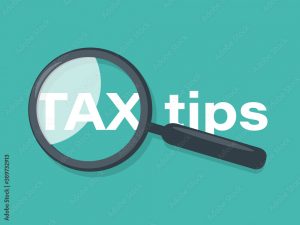
Introduction: Real estate agents operate in a dynamic and competitive industry, where maximizing profits and minimizing tax liabilities are essential for financial success. As tax season approaches, it’s crucial for real estate agents to have a solid understanding of the tax landscape and leverage strategies to optimize their financial outcomes. In this blog post, we’ll explore key tax tips specifically tailored for real estate professionals.
- Organize Your Finances: Start the year right by organizing your financial records. Keep track of income, expenses, and receipts meticulously. This not only streamlines the tax preparation process but also ensures you don’t miss out on any deductible expenses.
- Know Your Deductions: Real estate agents are eligible for various deductions. Common deductions include expenses related to marketing, advertising, professional development, and home office expenses. Deductible items can also include mileage for business-related travel, association dues, and technology expenses. Familiarize yourself with the specific deductions applicable to real estate professionals.
- Home Office Deduction: If you have a dedicated space in your home used exclusively for your real estate business, you may qualify for a home office deduction. This deduction can cover a portion of your home-related expenses, such as mortgage interest, property taxes, utilities, and insurance.
- Track Mileage and Travel Expenses: Real estate agents often travel extensively for property showings, client meetings, and other business-related activities. Keep a detailed log of your mileage and any other travel expenses, as these can be deductible. Consider using apps or tools that automate mileage tracking for accuracy.
- Invest in Professional Development: Continuing education and professional development expenses are generally tax-deductible for real estate agents. Whether it’s attending workshops, conferences, or pursuing additional certifications, these investments in your skills can have a positive impact on your taxes.
- Retirement Contributions: Explore retirement savings options that offer tax advantages. Contributing to a SEP IRA or a Solo 401(k) can not only help you save for the future but also provide potential tax benefits. Consult with a financial advisor to determine the best retirement savings strategy for your situation.
- Quarterly Estimated Tax Payments: Real estate agents often have fluctuating income throughout the year. To avoid surprises during tax season, consider making quarterly estimated tax payments. This helps you stay on top of your tax obligations and prevents penalties for underpayment.
- Consult with a Tax Professional: Tax laws can be complex and subject to change. Working with a tax professional who specializes in real estate can provide personalized advice based on your unique circumstances. They can help you navigate the intricacies of tax regulations and identify opportunities for additional savings.
Conclusion: By implementing these strategic tax tips, real estate agents can optimize their financial position and keep more of their hard-earned income. Stay proactive in managing your finances, stay informed about tax laws, and seek professional guidance to ensure you make the most of available tax benefits. A well-executed tax strategy can contribute to the long-term success of your real estate business.